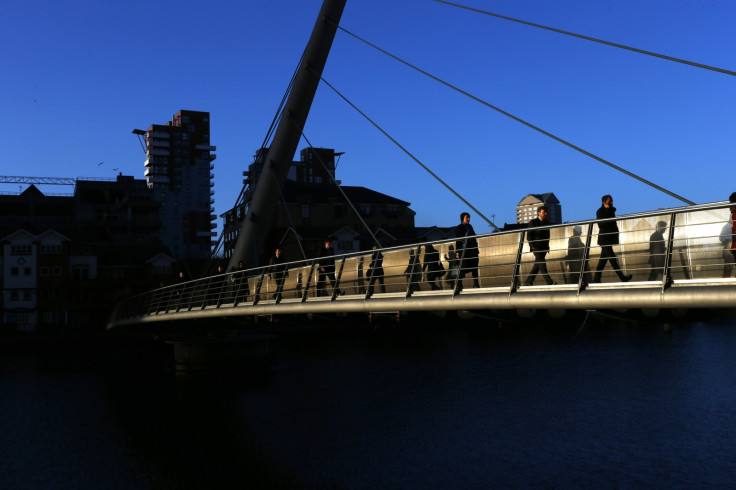FTSE 100 bosses earn almost 400 times more than workers on national living wage
Report from Equality Trust warns of growing inequality as CEOs 'gorge on obscene rewards'.

The top bosses of FTSE-listed companies earn on average almost 400 times more than a worker on the national living wage, new research has shown.
According to data published by the Equality Trust charity, the salary of an average chief executive of a FTSE company is 386 times bigger than that of an employee receiving £7.20 an hour. The charity said its calculations were based on reports from 2015 covering FTSE 100-listed firms, which showed CEOs received an average annual salary of £5.3m, compared to £13,662 for a worker on the national living wage.
The trust added approximately two-thirds of FTSE 100 CEO received a salary which was over 100 times higher than the average UK wage.
"We need far greater transparency on company pay practices to challenge poverty pay and executive excess at the same time," said equality trust executive director Wanda Wyporska.
"Only then can we create a sense of trust and common purpose essential to build an economy and society that works for all."
The Equality Trust added FTSE 100 bosses are paid 165 times more than a nurse, 140 times more than a teacher, 132 times more than a police officer and 312 times more than a care worker.
"The people who educate our children, look after our grandparents, and keep our families safe have seen their pay frozen, while fat cat CEOs continue to gorge themselves on obscene and undeserved rewards," Wyporska said.
"Pay inequality drives wider inequality, and we know this is bad for businesses, bad for our economy and bad for our health, our education and our wider society."
The report comes amid growing concerns of pay inequality in Britain, which could exacerbate the squeeze on households budget triggered by rising inflation and sluggish wage growth.
On Tuesday (21 March), the Office for National Statistics said inflation soared past expectations in February, breaking through the Bank of England's 2% target for the first time in three years, as the cost of fuel and food increased markedly.
Inflation rose 2.3% year-on-year last month, up from the 1.8% reading recorded in January and higher than the 2.1% figure analysts forecast, meaning the increase was the fastest on record since September 2013.
Meanwhile, data released last week showed basic salaries grew 2.2% in the three months to January, down from a 2.6% gain in the previous month and falling short of forecast for a 2.4% reading.
"Inflation is now higher than the growth in average earnings, meaning real pay is officially shrinking," said Ben Brettell, senior economist at Hargreaves Lansdown.
"The interplay between these two numbers will be closely watched over the coming months. The UK economy relies heavily on consumer spending and a squeeze on household budgets would not be good news."
© Copyright IBTimes 2025. All rights reserved.






















